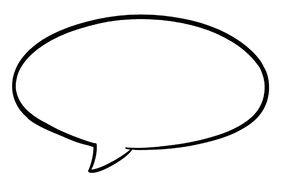When Good Feedback Goes Bad
But beta rounds often go bad. From providing too much information, to taking too much time, to providing too little insight, to acting as too enthusiastic an editor, a beta reader can unwittingly throw good work off track.
The question of when can be tricky. Writers working on big projects can experience a long and dramatic cycle of productivity. The highs are high, pushing them to efficient productivity. But the lows are low, burying them in inert doubt.
Writers sometimes navigate the low moments with outside readers. This is premature! Although feedback can act as a prod, too-early feedback can lead writers backward, revising and revisioning a project’s focus and message before either has been fully worked out.
The question of to what readers should respond is more straightforward. Create a Google Form and ask questions that will solicit practical answers. A question like, “What’s weak and needs to be strengthened?” can provoke long, impressionistic responses. A question like, “I want to close chapter 5 with a powerful testimonial. What would make the current example stronger?” encourages more actionable answers.
Reader response works best when readers are acting less as contributors and more as quality control, the last step of affirmation and/or gentle remonstrance before submission. Use readers to make your writing better, but use them at the right time and ask them the right questions.

